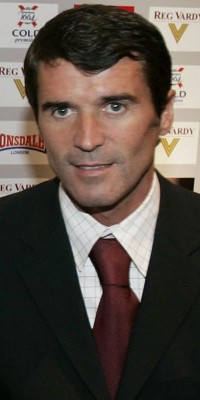|
Fast-track to Failure?
Last Updated : 31-Aug-2006 byThe antidote to this depression? Appoint a big name, from amongst the veterans of the playing circuit. A former international with a glittering career behind him: better still, a former captain who has lifted a host of trophies, coming towards the end of his playing days and looking towards the future.
No matter that he has no experience of life on the other side of the fence. He'll command the respect of the players by dint of his own playing deeds. A lack of man-management experience? He's a leader of men, whose charisma shone through on the field. A lack of nous in the transfer market? He'll have contacts in the game, former team-mates, former managers, on whom he can call. And besides, there is a solution to all these drawbacks – an experienced assistant can cover these gaping holes in the CV.
Instant, canned, feel good factor. Oh come on, we've all been there. That bizarre surge of optimism which comes with the limelight, the intoxicating thrill of being headline news, after time spent in a backwater. The sense of pleasure at being the club everyone at work or school is talking about, impressed at this show of ambition.
If, as at Sunderland, it coincides with the arrival of a new board, it is a statement of intent. If not, it creates the impression of a club thinking outside the box, lifting its horizons above the mediocre. There is usually the promise of money to spend, even if there is nothing to suggest that it will be spent well. Being a club in fashion, lifting the curtain on a new dawn, engenders the hope on which football clubs thrive, whether or not that hope masks a sense of uneasiness when one looks at the reality behind the fanfare and show.
But feel good factor it may create; guarantee of success it is not. Appointing Roy Keane as manager is, quite simply, a risk, albeit a risk that may be mollified by giving him 15 million quid to spend in a division where most teams have a fraction of that sum. Just as the appointment of many other famous names before him has been a risk. There are a litany of former players – some regarded as leaders on the pitch – whose much-touted managerial careers have crashed and burned before they ever really started.
Tony Adams took over the reigns at Wycombe with plenty of fanfare, only to leave twelve months later, having overseen a relegation and half a season of struggle in the league below. Thanks for your time, Tone, and don't call us, we'll call you. Bobbys' Moore and Charlton famously failed as managers - and of that world cup winning England team, it was only Charlton's brother Jack who went on to have any real success in the management hot-seat.
At Burnley, we have form for this. Jimmy McIlroy was a wonderful player, but one who quickly decided at Oldham and then Bolton that management was not for him. And we have ourselves dabbled in the appointment of famous names with no prior experience: who would want either Martin Buchan or Chris Waddle back through the gates of Turf Moor?
Nor is their failure a surprise. It is very much like appointing the poacher as gamekeeper; however authoritative a captain they may have been, however close they may come to bridging that gulf which exists between players and manager – they are still, ultimately on the wrong side of that gap for as long as they remain a player. They still have those gaps in their CV.
Players live by different rules: even if Keane delivered the odd verbal lashing to his colleagues, it was still Alex Ferguson who had to man-manage his squad, bully, cajole and act as father; it was Ferguson who has to decide on tactics and training. It was Ferguson who operated in the transfer market, met the press, and dealt with directors and met all the other people who demand the time of a manager.
Keane has never done any of these things. Of course, if he wishes to become a manager, he will have to learn somehow, just as Ferguson himself did once. But Ferguson went right to the bottom to start out as a manager, and did so after a spell as a player coach at Falkirk. He did his time, developed a perspective on the job, gained insights which would prevent him making mistakes when he did become a number one.
And then he took his first post away from the spotlight, where he could grow into the role in his own time, without the burning pressure that grows exponentially with the size of the club. He did not waltz straight out of the dressing room and into the manager's office at a major football league club. The head boy does not get promoted to headmaster straight away. He must be a common teacher first.
Few ex-players seem to do it that way now, though. Just as clubs have desired quick-fixes, so ex-players have demanded a fast-track to the top. It may be why so few former players from these shores make it as managers, why the best of the new breed are people like Alan Pardew, Paul Jewell, Sam Allardyce and Steve McLaren, whose playing careers were modest.
Maybe Keane will make it, but the jury must be out on this impatient firebrand. In any event, I have one question: when he arrives in December, what will he make of the away changing room, in the bowels of the Cricket Field End of Turf Moor?

